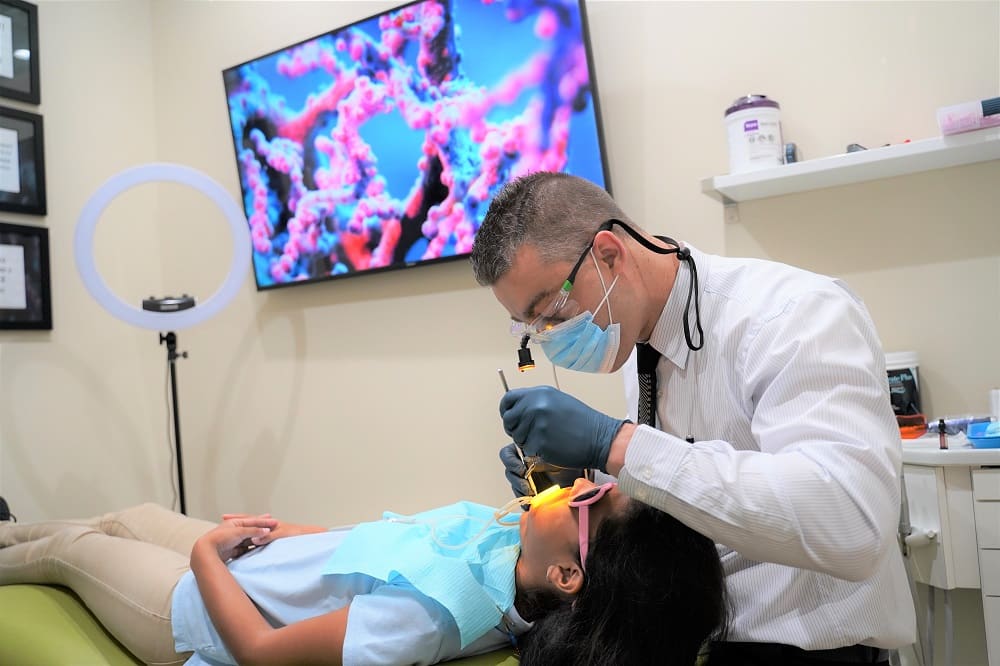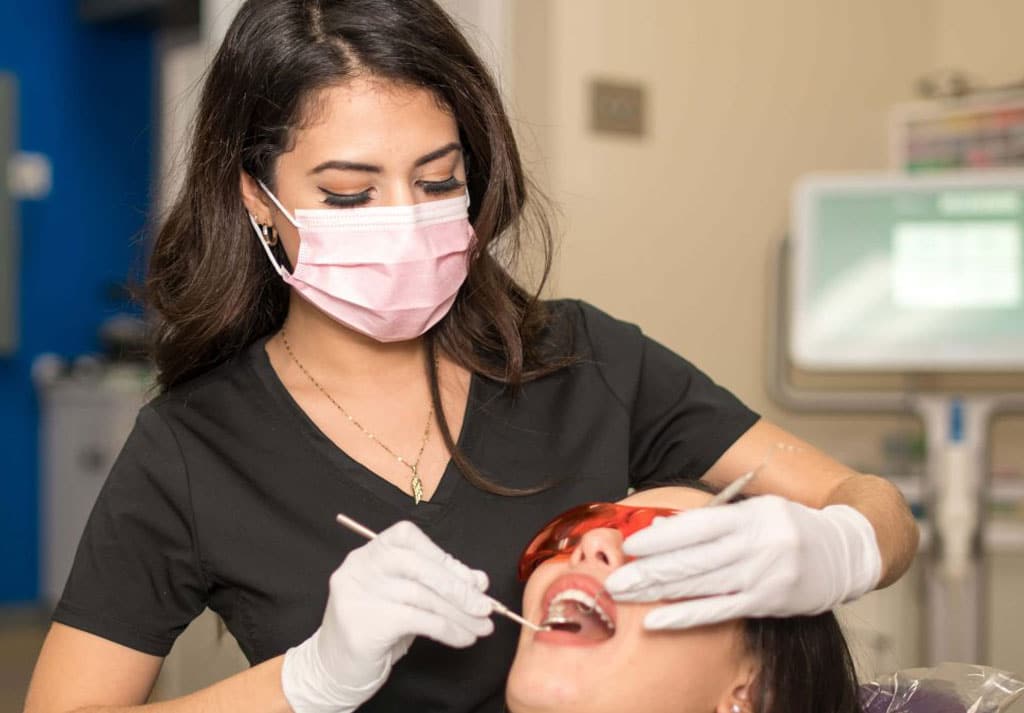Bite blocks braces are also known as bite turbos or bite ramps and are usually used in orthodontic treatment, especially for individuals with braces. These small devices help with several different purposes:
Overbite Correction:
Bite blocks are frequently employed to address issues related to overbites. An overbite occurs when the upper front teeth excessively overlap the lower front teeth. Therefore, by placing bite blocks on certain teeth, south Miami orthodontist can create space and prevent the lower teeth from hitting the upper brackets or appliances, which allows them to correct the overbite with time.
Bracket Safety:
Bite blocks are a useful tool for preventing excessive biting or clenching that could harm the brackets and other parts of the braces. Bite blocks assist in distributing the biting forces more evenly, reducing the chance of damage because braces can be sensitive, especially when they are first applied or adjusted.

Create Space:
In certain situations, orthodontists use bite blocks to make space between particular teeth. When there is crowding or misalignment, and the orthodontist needs to make accommodations for proper alignment during treatment, this is especially helpful.
Facilitate Tooth Movement:
Bite blocks are useful tools for helping teeth move into the appropriate positions. Through careful placement of bite blocks, orthodontists can modify the way teeth come together, contributing to the achievement of a more balanced and functional bite.
Side effects from bite blocks
With bite blocks, you may have some difficulties, like with other dental devices. Here are some of the most common problems with bite blocks. But practicing can make your speech clear day by day.
Speech impairment
When using bite blocks, you may have some speech problems as the bite blocks get in the way when you talk. This issue is more common when blocks are attached to the lingual (inside) surface of your teeth.

Minor Discomfort
Discomfort or tenderness in the areas where the bite blocks are placed is common. This discomfort typically fades away within a mouth as you adjust to the new appliances. Over-the-counter pain relievers and orthodontic wax can help alleviate any soreness. Consult with your orthodontist if you have major pain or discomfort signs.
Difficulty Chewing:
Bite blocks can often make chewing food challenging, especially during the initial days after placement. Patients are usually advised to stick to softer foods and gradually reintroduce harder foods as they become more accustomed to the bite blocks.
It's crucial to talk to your best rated orthodontist for any concerns or discomfort you experience. They can provide you with proper guidance and make any necessary adjustments, and offer solutions to the side effects.
In Conclusion:
It's important to note that every treatment plan is different, and the use of bite blocks is specific to every individual. Also, not everyone with braces will necessarily have bite blocks. Orthodontists tailor treatment plans to the unique needs and characteristics of each patient's bite and dental alignment. If you have questions about your specific orthodontic treatment, it's best to consult with your orthodontist for proper guidance.























